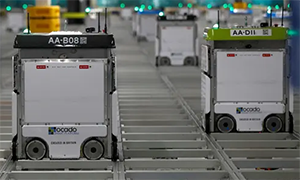13 September 2021

Covid-19 has caused havoc in the world's supply chains, with numerous disruptions and delays. But without sophisticated math – including a lot of linear algebra – modern supply chains would not operate at all.
The Guardian newspaper has an interesting article about the math of logistics:
Algebra: the maths working to solve the UK’s supply chain crisis.
As the article says:
The maths of logistics starts with algebra – linear algebra, to be precise. ...
Linear algebra explores solutions for sets of equations that together contain all you need to find out the relationships between the variables. ...
Logistics hasn't stood still with linear algebra, however. It has been developed into algorithms for "linear programming" and "mixed integer programming" and various other odd-sounding mathematical routines, such as "combinatorial optimisation", "greedy heuristics" and "simulated annealing". ...
And it's all done with just one purpose: to deliver to every customer, on time and in full – OTIF as it's known in the trade.
Brooks, M. (2021). "Algebra: the maths working to solve the UK’s supply chain crisis"
The article provides some insight into the hidden complexity of the systems that supply our everyday products and services. The algebra of optimization techniques, embedded within our supply chains, makes the modern world possible.
